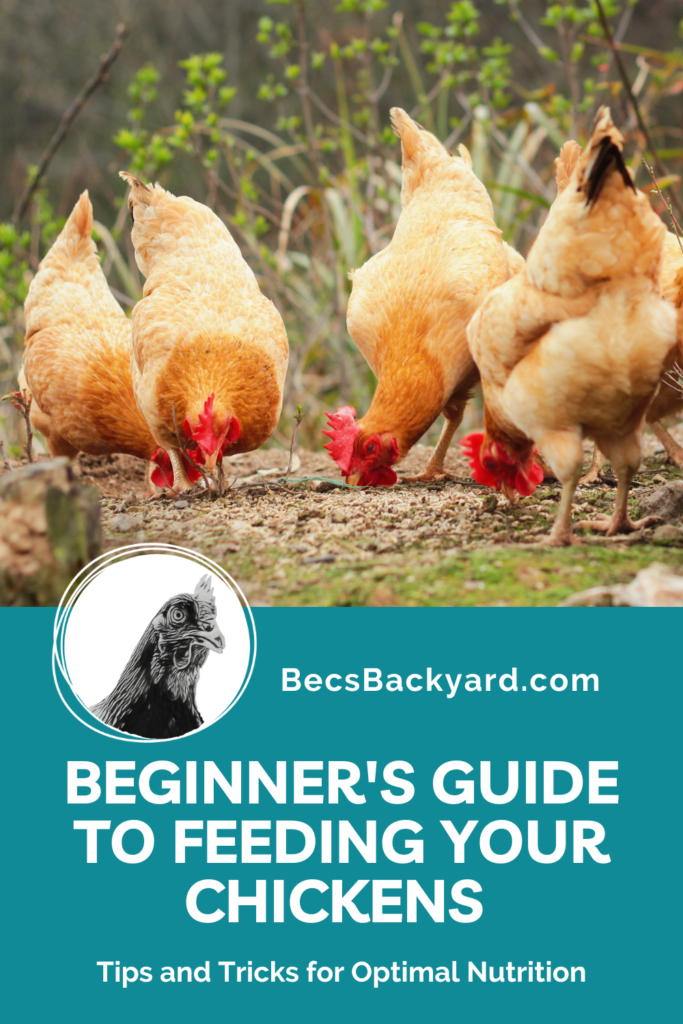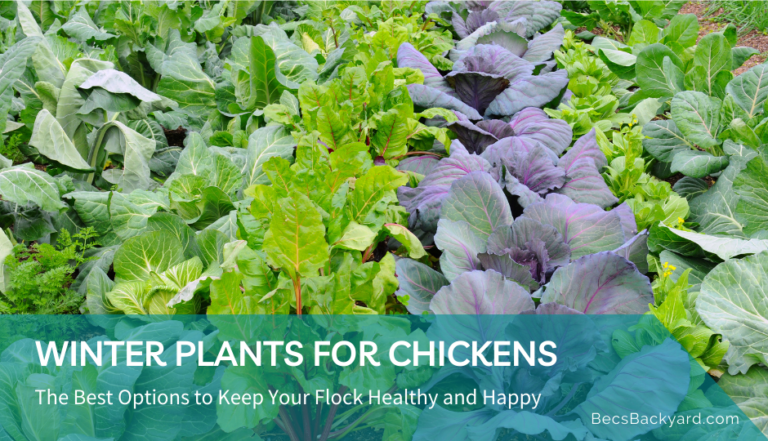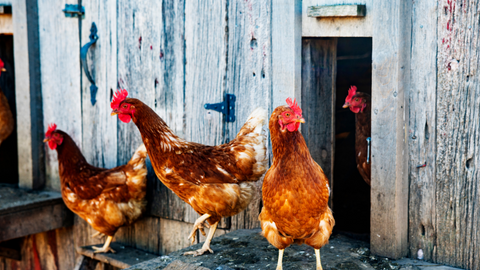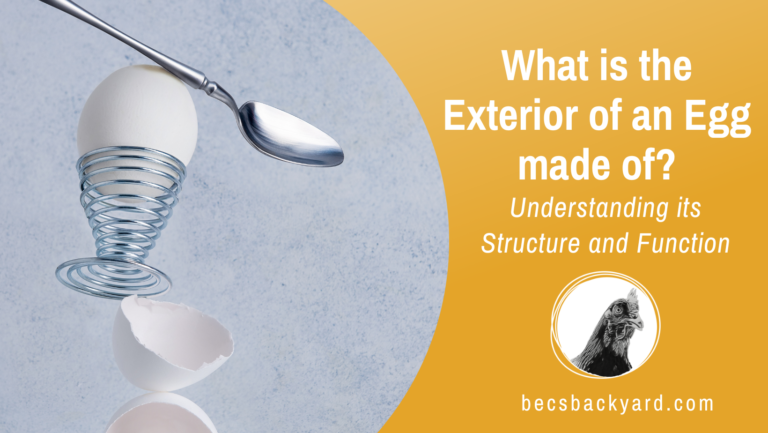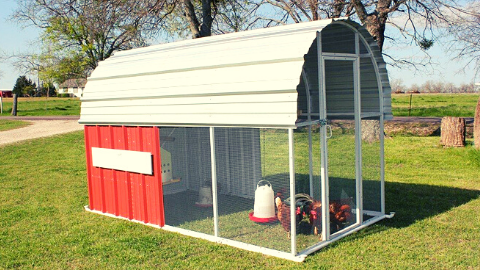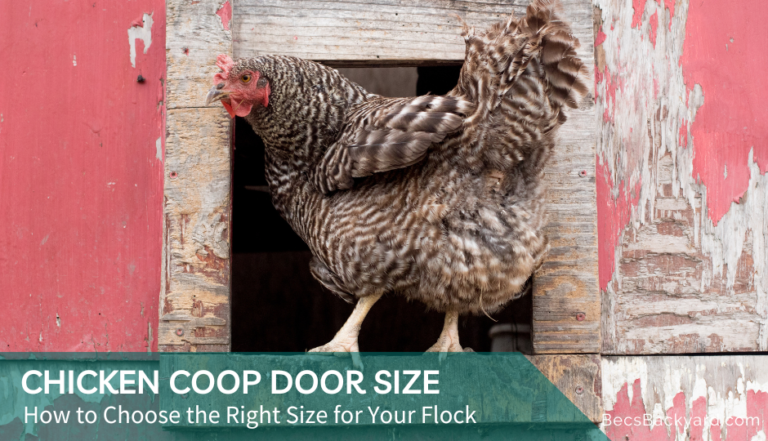Beginner’s Guide to Feeding Your Chickens: Tips and Tricks for Optimal Nutrition
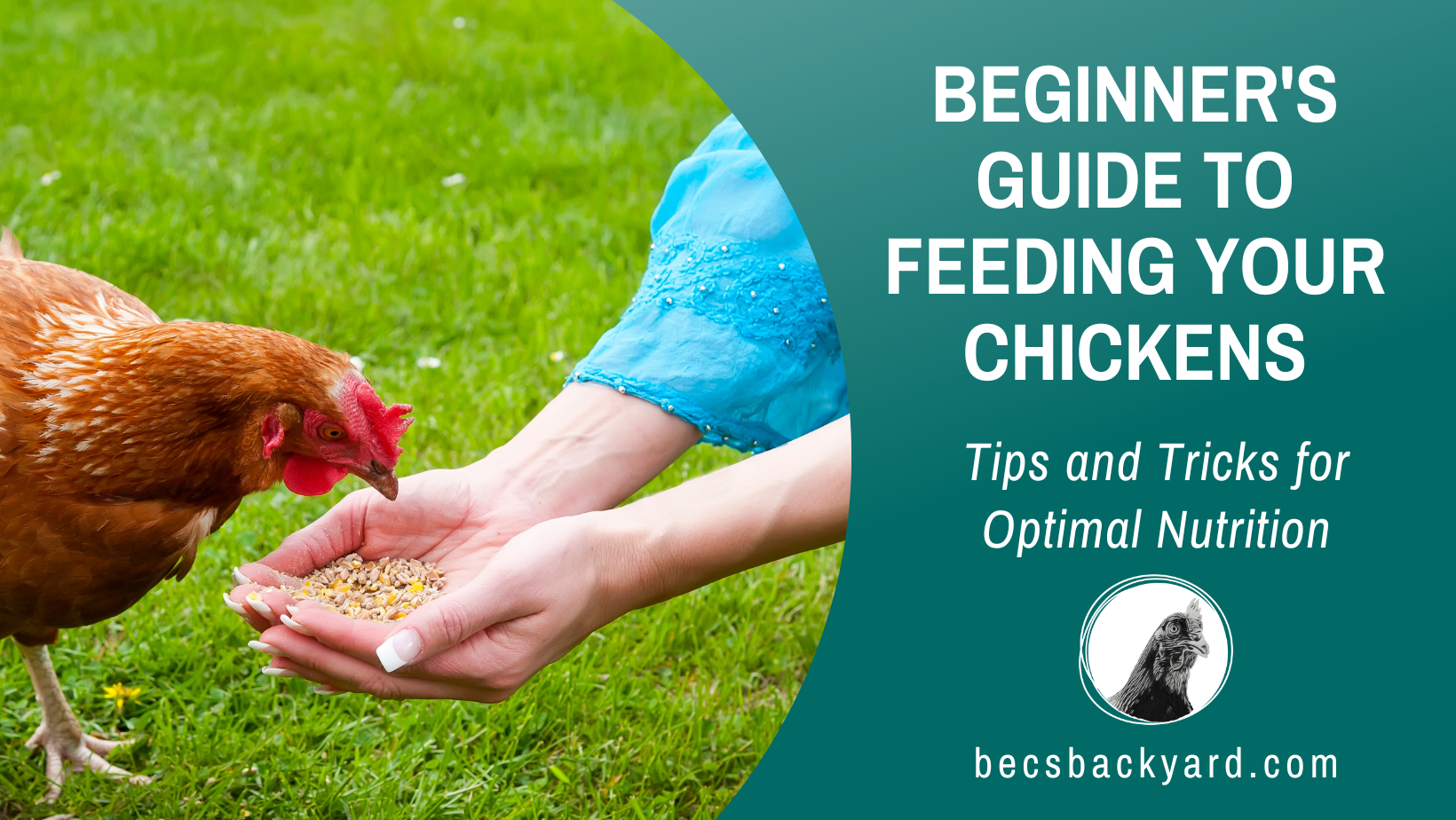
Welcome to the world of raising chickens! Whether you’re starting your backyard flock for fresh eggs, meat, or simply as delightful companions, understanding how to properly feed your chickens is an essential step toward their health and well-being. Proper nutrition is key to their growth, egg production, and overall vitality. In this Beginner’s Guide to Feeding Your Chickens, we’ll walk you through the intricacies of chicken nutrition and provide you with valuable insights on how to tailor their diet to various life stages and conditions.
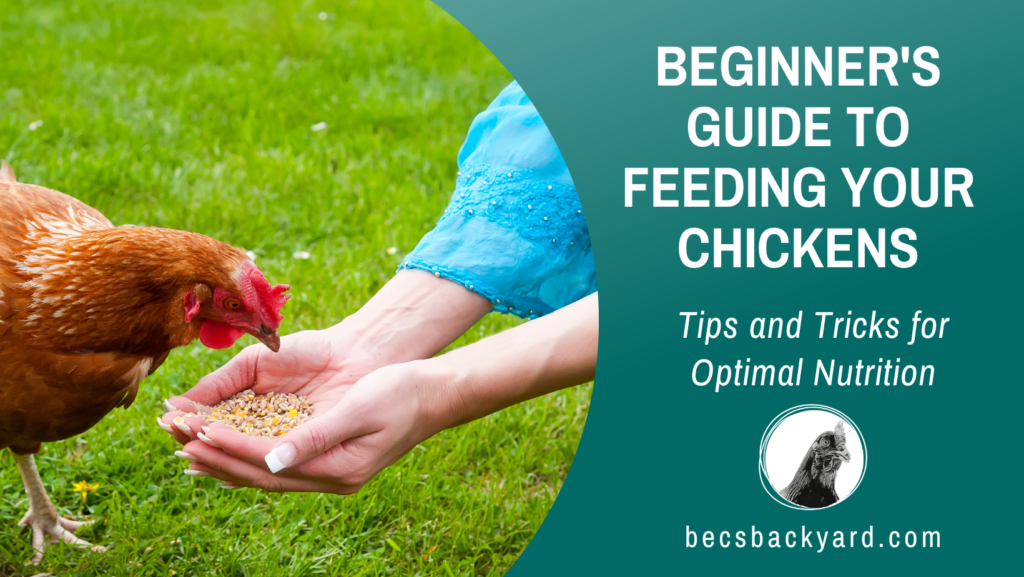
Understanding Chicken Nutrition : Beginner’s Guide to Feeding Your Chickens
Feeding your chickens a balanced diet is essential for their overall health and wellbeing. Chickens have specific nutritional requirements that need to be met to ensure they stay healthy and productive. In this section, we will discuss the basic nutritional needs of chickens.
Protein
Protein is an essential nutrient for chickens, and it is necessary for growth, development, and egg production. The protein requirement of chickens varies depending on their age and purpose. For example, chicks require a higher percentage of protein than adult chickens. Meat birds also require a higher percentage of protein than laying hens.
Calcium
Calcium is another critical nutrient for chickens. It is necessary for the development of strong bones and eggshells. Laying hens require a higher level of calcium than non-laying hens. Calcium deficiency can lead to soft-shelled or thin-shelled eggs, which can be a problem for both backyard and commercial egg producers.
Vitamins and Minerals
Chickens also require a range of vitamins and minerals to maintain good health. These include vitamins A, D, E, and K, as well as minerals such as iron, zinc, and selenium. A balanced diet that includes a variety of foods, including fruits and vegetables, can help ensure that chickens get the vitamins and minerals they need.
Fiber and Fats
Fiber and fats are also important components of a chicken’s diet. Fiber helps to promote healthy digestion, while fats provide energy and support healthy skin and feathers. However, it is important to ensure that chickens do not consume too much fat, as this can lead to obesity and other health problems.
Amino Acids
Amino acids are the building blocks of protein, and they are essential for growth and development. Chickens require a range of amino acids, including lysine and methionine, which are often added to commercial chicken feed to ensure that chickens get the nutrients they need.
In summary, understanding chicken nutrition is essential for anyone who wants to raise healthy and productive chickens. Providing a balanced diet that meets their nutritional requirements is key to ensuring that your chickens stay healthy and produce high-quality eggs.
Types of Chicken Feed
When it comes to feeding your chickens, there are several types of chicken feed to choose from. Each type has its own benefits and drawbacks, so it’s important to choose the right one for your flock.

Medicated Vs Non-Medicated Feed
Medicated feed contains medication to prevent or treat common illnesses in chickens, such as coccidiosis. Non-medicated feed does not contain any medication. If your chickens are healthy and you don’t have any issues with disease, non-medicated feed is a good choice. However, if your chickens have been sick in the past or if you have a history of disease in your flock, medicated feed may be a better choice.
Layer Feed Vs Chick Feed
Layer feed is specifically designed for laying hens and contains higher levels of calcium to support egg production. Chick feed, on the other hand, is designed for baby chicks and contains higher levels of protein to support growth. If you have a mixed flock, you can provide both types of feed, but make sure to separate them to prevent the chicks from eating the layer feed too early.
Commercial Feed Vs Homemade Feed
Commercial feed is convenient and easy to find at most feed stores. It’s also formulated to provide all the necessary nutrients for your chickens. Homemade feed, on the other hand, allows you to control the ingredients and can be more cost-effective. However, it can be difficult to ensure that your chickens are getting all the necessary nutrients.
Grains, Pellets, Crumbles, and Mash
Chicken feed comes in several different forms, including grains, pellets, crumbles, and mash. Grains are whole or cracked grains, such as corn or wheat. Pellets are compressed and uniform in shape, while crumbles are small pieces of feed. Mash is a wet mixture of grains and other ingredients. Each type of feed has its own benefits and drawbacks, so it’s important to choose the right one for your flock.
When choosing the right type of chicken feed for your flock, it’s important to consider their age, health, and intended use. By providing your chickens with the right type of feed, you can help ensure their health and happiness.
Feeding Chickens at Different Stages
Feeding chickens at different stages of their life is crucial to ensure their health and productivity. Here are some guidelines for feeding chicks, pullets, laying hens, non-layers, and meat birds.

Feeding Chicks
Chicks require a high-protein diet to support their growth and development. A starter feed with at least 18% protein is recommended for the first 6 weeks of their life. After that, you can switch to a grower feed with 16-18% protein until they reach 16 weeks of age. It’s important to provide fresh water and feed at all times, and to avoid overfeeding as it can lead to health problems.
Feeding Pullets
Pullets are young female chickens that are nearing the age of laying eggs. They require a diet with slightly lower protein levels than chicks, around 16-18%. You can continue to feed them with grower feed until they reach 18-20 weeks of age, at which point you can switch to a layer feed.
Feeding Laying Hens
Laying hens require a diet with higher levels of calcium and protein to support egg production. A layer feed with at least 16% protein and 3-4% calcium is recommended. You can also supplement their diet with oyster shells or crushed eggshells to ensure they get enough calcium. It’s important to provide fresh water and feed at all times, and to avoid overfeeding as it can lead to health problems.
Feeding Non-Layers
Non-laying chickens, such as roosters or retired hens, require a diet with lower levels of protein and calcium. A maintenance feed with around 14% protein is recommended. It’s important to provide fresh water and feed at all times, and to avoid overfeeding as it can lead to health problems.
Feeding Meat Birds
Broiler and other meat birds require a diet with higher levels of protein to support their rapid growth. A broiler feed with at least 20% protein is recommended. It’s important to provide fresh water and feed at all times, and to avoid overfeeding as it can lead to health problems.
In conclusion, feeding chickens at different stages of their life requires careful consideration of their nutritional needs. By following these guidelines, you can ensure that your chickens stay healthy and productive.
Supplements and Treats for Chickens
When it comes to feeding your chickens, supplements and treats can be a great way to provide them with additional nutrition and keep them happy. However, it’s important to remember that supplements and treats should only account for 10% of their total diet each day. Here are some types of supplements and treats that you can add to your chickens’ diet.
Using Grit and Oyster Shell
Grit is necessary for chicks and chickens to be able to process food other than feed. All chickens need grit, so make sure it’s available if they can’t free-range. Oyster shell is vital for hen health and strong eggshells. If the hen does not get enough calcium, she may lay eggs with thin or brittle shells. You can provide oyster shell in a separate container or mix it into their feed.

Vegetable and Fruit Treats
Chickens love vegetables and fruits, and they’re a great way to provide them with additional vitamins and minerals. Some of the best vegetable treats for chickens include lettuce, kale, spinach, collards, and chickweed. Fruits like watermelon, berries, and bananas are also great choices.
Insects and Mealworms
Insects and mealworms are a great source of protein for chickens. You can buy them at a pet store or online, or you can raise your own mealworms. Your chickens will love chasing after and eating live insects, so consider letting them free-range in your garden to find their own treats.
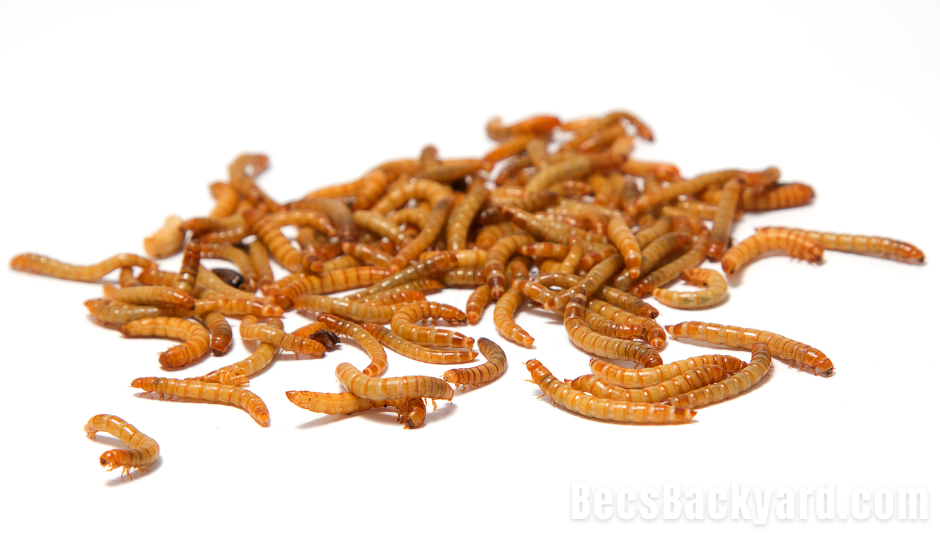
Kitchen and Table Scraps
Kitchen and table scraps can also be a great source of nutrition for your chickens. Just make sure that you’re only feeding them food items that are still considered edible by humans. Don’t feed anything spoiled, moldy, oily, salty, or unidentifiable. Some great kitchen and table scraps for chickens include bread, pasta, rice, cooked vegetables, and fruit peels.
Overall, supplements and treats can be a great way to provide your chickens with additional nutrition and keep them happy. Just remember to keep them to 10% of their total diet each day, and provide a balanced diet of feed, grit, and oyster shell.
Feeding Chickens in Different Conditions
Feeding chickens can vary depending on the conditions in which they are kept. Here are some tips on how to feed your chickens in different conditions.
Feeding Chickens in Winter
During the winter months, chickens require more food to keep warm. It is important to provide them with a high-quality feed that is high in protein and nutrients. You can also supplement their diet with scratch grains, which will give them extra energy to stay warm. Make sure to provide plenty of fresh water, as it can be difficult for chickens to stay hydrated in the winter.
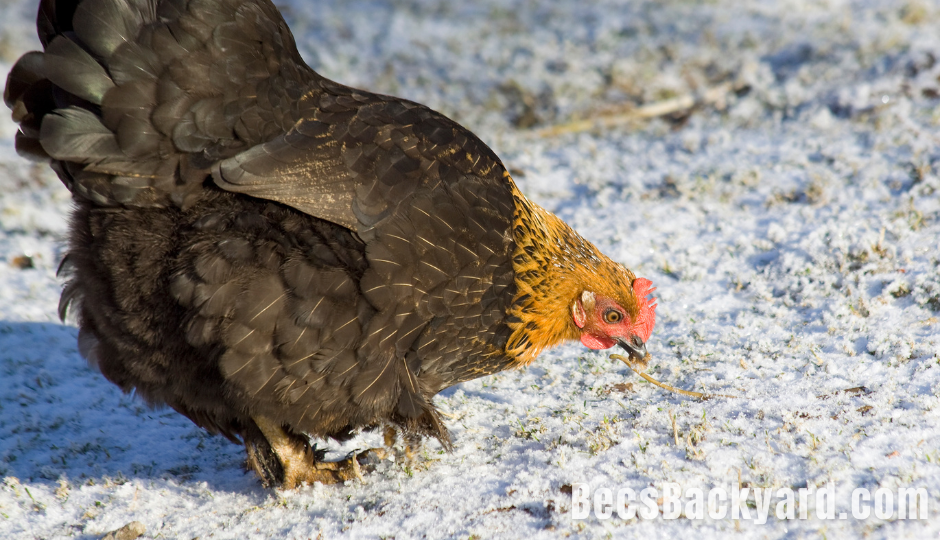
Feeding Chickens in Pasture
If you keep your chickens in a pasture, they will have access to natural food sources such as grass, insects, and seeds. However, it is still important to provide them with a balanced diet to ensure they are getting all the necessary nutrients. You can supplement their diet with a commercial feed that is designed for chickens in a pasture. Make sure to provide plenty of fresh water, as chickens that are free-ranging tend to drink more water.
Feeding Chickens in Coop and Run
If your chickens are kept in a coop and run, it is important to provide them with a high-quality feed that is designed for their specific needs. You can also supplement their diet with scratch grains, fruits, and vegetables. Make sure to provide plenty of fresh water, as chickens that are kept in a coop and run tend to drink less water than those that are free-ranging.
When feeding chickens in a coop and run, it is also important to provide them with a clean and comfortable environment. Use bedding such as straw or wood shavings to keep their coop clean and dry. You can also compost their bedding to create nutrient-rich soil for your garden.
Finally, make sure to provide proper fencing to keep your chickens safe from predators. A secure coop and run will ensure that your chickens stay healthy and happy.
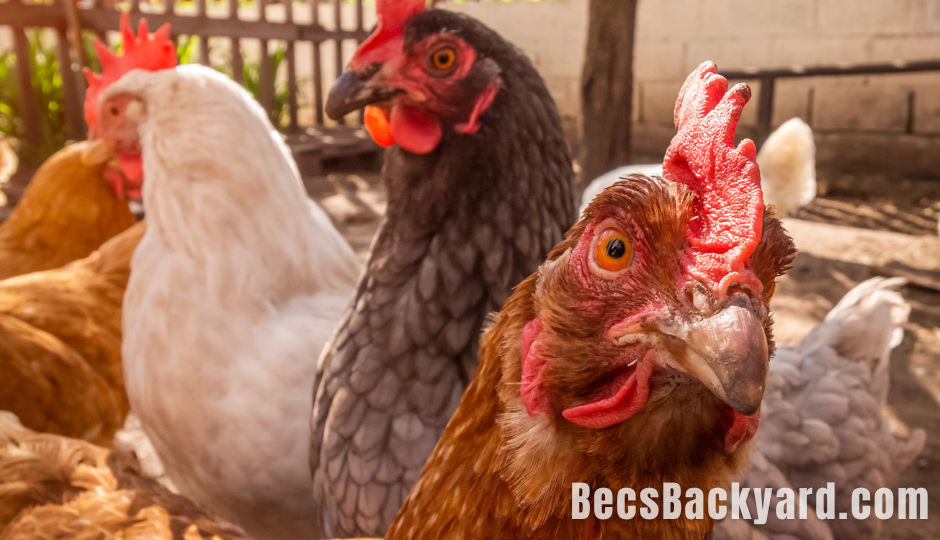
Special Considerations in Chicken Feeding
When it comes to feeding your chickens, there are a few special considerations to keep in mind depending on your goals and the needs of your flock. In this section, we will cover some of the most important considerations for feeding chickens for egg production, meat production, omnivores, backyard chickens, and for raising chicks.
Feeding for Egg Production
To promote optimal egg production, it is important to provide your hens with a diet high in protein and calcium. A good starter ration for chicks should be around 18-20% protein, while layers should be fed a diet with at least 16% protein. Calcium is also essential for egg production, so be sure to provide your hens with a source of calcium such as crushed eggshells or oyster shells.
Feeding for Meat Production
If you are raising chickens for meat production, it is important to provide them with a high protein feed of about 22 to 24% protein for the first six weeks. This is called “meat bird starter” or “starter.” After six weeks, you can switch to a grower or finisher feed that has a lower protein content.
Feeding Omnivores
Chickens are omnivores and will eat just about anything, but there are some foods you should avoid feeding them. Avocados and chocolate are toxic to chickens, and feeding them scraps from your kitchen that contain high levels of salt, fat, or sugar should be avoided. Chickens love to scratch and forage, so providing them with access to a run or free-range area where they can hunt for bugs and eat grass and weeds is ideal.
Feeding Backyard Chickens
If you are raising chickens in your backyard, it is important to provide them with a balanced diet that meets their basic feed requirements. This includes a good quality chicken feed that is high in protein and essential minerals, as well as access to clean water at all times. You can also supplement their diet with treats such as hard-boiled egg yolks, mealworms, chopped blueberries, and yogurt.
Feeding Chickens Fermented Feed
Fermented feed is a great way to improve the health of your chickens and increase the bioavailability of nutrients in their diet. To make fermented feed, simply soak your chicken feed in water for 24-48 hours, adding a probiotic supplement if desired. The result is a tangy, slightly sour feed that your chickens will love.
Feeding Chickens Wheat
Wheat is a great source of protein for chickens and can be fed as part of their regular diet. However, it should be fed in moderation as it is high in carbohydrates and can cause your chickens to gain weight if fed in excess.
Feeding Chickens to Raise Chicks
If you are raising chicks, it is important to provide them with a starter feed that is high in protein and essential nutrients. You can also supplement their diet with treats such as hard-boiled egg yolks and chopped greens. As they grow, you can gradually switch them to a grower or finisher feed that has a lower protein content.
In conclusion, feeding your chickens a balanced and nutritious diet is essential for their health and well-being. By following these tips and providing your flock with a diet that meets their specific needs, you can ensure that your chickens are happy, healthy, and productive.
Frequently Asked Questions
What is the ideal feed for 4 month old chickens?
At 4 months old, chickens are still in their growing phase and require a balanced diet to support their development. A good option for this age is a grower feed that contains around 16% protein. Look for feeds that also contain essential vitamins and minerals, such as calcium, to support strong bones and eggshell development.
When should I switch from grower feed to layer feed?
You should switch from grower feed to layer feed when your chickens reach around 18-20 weeks of age. Layer feed contains higher levels of calcium and other nutrients necessary for egg production. Be sure to make the switch gradually, mixing the old and new feeds together over a period of a week or so to avoid digestive upset.
How often should I feed my chickens?
Chickens should have access to feed at all times, but that doesn’t mean you need to leave food out 24/7. A good rule of thumb is to provide enough feed for them to eat in about 15 minutes, 2-3 times per day. This helps prevent overeating and waste.
What are some natural foods that I can feed my chickens?
Chickens enjoy a variety of natural foods, including fruits, vegetables, and grains. Some good options include leafy greens, carrots, apples, and whole grains like oats or barley. Just be sure to avoid feeding them anything that is toxic to chickens, such as avocado or chocolate.
Is there a recommended time of day to feed chickens?
There is no specific time of day that is best for feeding chickens, but it’s important to establish a consistent feeding routine. This helps your chickens develop a regular eating pattern and can also make it easier to monitor their food intake. Some people prefer to feed their chickens in the morning, while others prefer to feed them in the evening. Ultimately, the choice is up to you.
Beginner’s Guide to Feeding Your Chickens : Nurturing Healthy Chickens Through Informed Feeding
As you embark on your journey as a beginner chicken keeper, you’ve gained a wealth of knowledge about the importance of proper nutrition and feeding practices for your flock. By understanding the nuances of chicken nutrition, you’re better equipped to provide your chickens with the best care possible, ensuring their health, vitality, and productivity.
Remember, a well-balanced diet is the cornerstone of happy and thriving chickens. From the delicate needs of chicks to the nutritional requirements of laying hens, and even the considerations for meat birds, you now have a comprehensive understanding of how to nourish your flock at every stage of their lives. You’re armed with insights into the types of feeds available, the benefits of various supplements and treats, and the strategies for feeding in different conditions.
In the intricate tapestry of chicken keeping, your role as a feeder is vital. Your choices impact not only their physical health but also their behavioral well-being. The treats you provide can foster trust and create joyful interactions between you and your chickens.
As you move forward, always pay attention to your flock’s needs. Observe their behavior, monitor their health, and adjust their diet as necessary. By combining your newfound knowledge with your personal observations, you’ll be able to tailor their nutrition to perfection.
Remember, raising chickens is a journey of learning and growth, much like the birds themselves. Your dedication to providing them with the best nourishment is a testament to your commitment as a responsible chicken keeper. With the information you’ve gathered from this guide, you’re well on your way to nurturing a happy and healthy flock that will reward you with fresh eggs, companionship, and the satisfaction of a job well done.
Here’s to your flourishing flock and your fulfilling journey into the world of chicken keeping. Happy feeding!
